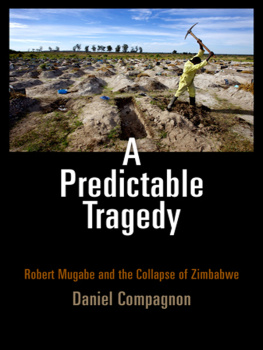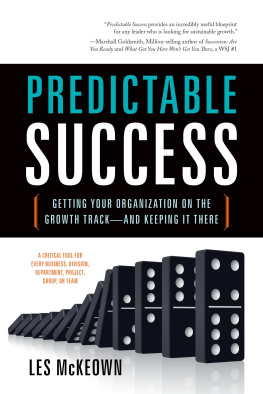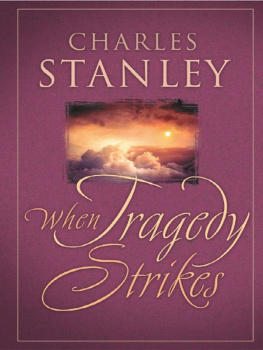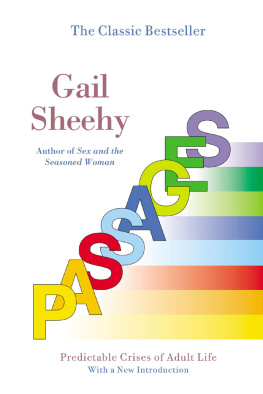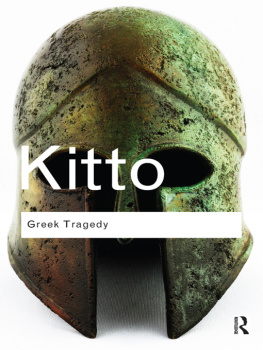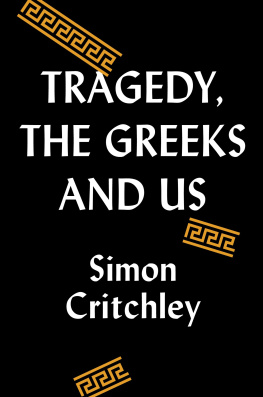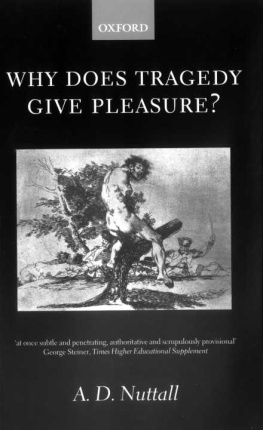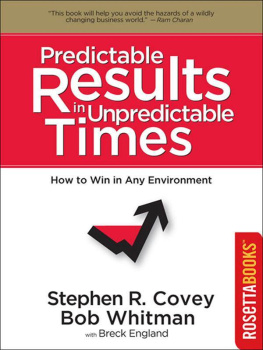Compagnon - A Predictable Tragedy
Here you can read online Compagnon - A Predictable Tragedy full text of the book (entire story) in english for free. Download pdf and epub, get meaning, cover and reviews about this ebook. year: 2011, publisher: University of Pennsylvania Press, genre: Politics. Description of the work, (preface) as well as reviews are available. Best literature library LitArk.com created for fans of good reading and offers a wide selection of genres:
Romance novel
Science fiction
Adventure
Detective
Science
History
Home and family
Prose
Art
Politics
Computer
Non-fiction
Religion
Business
Children
Humor
Choose a favorite category and find really read worthwhile books. Enjoy immersion in the world of imagination, feel the emotions of the characters or learn something new for yourself, make an fascinating discovery.
A Predictable Tragedy: summary, description and annotation
We offer to read an annotation, description, summary or preface (depends on what the author of the book "A Predictable Tragedy" wrote himself). If you haven't found the necessary information about the book — write in the comments, we will try to find it.
A Predictable Tragedy — read online for free the complete book (whole text) full work
Below is the text of the book, divided by pages. System saving the place of the last page read, allows you to conveniently read the book "A Predictable Tragedy" online for free, without having to search again every time where you left off. Put a bookmark, and you can go to the page where you finished reading at any time.
Font size:
Interval:
Bookmark:
A Predictable Tragedy
A Predictable Tragedy
Robert Mugabe and the Collapse of Zimbabwe
Daniel Compagnon
PENN
UNIVERSITY OF PENNSYLVANIA PRESS
PHILADELPHIA
Copyright 2011 University of Pennsylvania Press
All rights reserved. Except for brief quotations used for purposes of review or scholarly citation, none of this book may be reproduced in any form by any means without written permission from the publisher.
Published by
University of Pennsylvania Press
Philadelphia, Pennsylvania 19104-4112
Printed in the United States of America on acid-free paper
10 9 8 7 6 5 4 3 2 1
Library of Congress Cataloging-in-Publication Data
Compagnon, Daniel.
A Predictable Tragedy: Robert Mugabe and the collapse of Zimbabwe / Daniel Compagnon.
p. cm.
Includes bibliographical references and index.
ISBN 978-0-8122-4267-6 (hardcover : alk. paper)
1. ZimbabwePolitics and government1980 2. ZimbabweSocial conditions1980 3. ZimbabweEconomic conditions1980 4. Mugabe, Robert, 1924 I. Title.
DT2996.C66 2010
968.91051092dc 2010004561
Introduction
When the Zimbabwean flag was raised officially in the early hours of 18 April 1980, symbolizing the dawn of a new era and the end of a bitter liberation war, who could have imagined then that the crowds cheering their heroRobert Mugabewould come to hate him some thirty years later after he led them to starvation, ruin, and anarchy? Who would have expected Zimbabwe to become the sick man of southern Africa, a security concern for its neighbors, and an irritant in the mind of progressive opinion leaders such as former anti-apartheid lead activist and Nobel Peace Prize winner archbishop Desmond Tutu, who would, in 2008, call for Mugabes forced removal from power? As we shall see, this disaster should not have come as a complete surprise since there were, from the beginning, many worrying signs of Mugabes thirst for power, his recklessness, and his lack of concern for the well-being of his fellow countrymen and women, as well as the greed and brutality of his lieutenants in his party, the Zimbabwe African National Union-Patriotic Front (ZANU-PF).
Behind the suffering of Zimbabweans today are a series of political myths forged by the new regime and outsiders who, until recently, supported Mugabes government unconditionally. One of the most enduring was the myth of a democratic multiracial Zimbabwe led by an urbane, educated politicianthe mirror image of the bloodthirsty guerrilla leader portrayed in the Western press in the 1970s. Everyone marveled how this bright and magnanimous statesman extended political pardons not only to his rivals in the Zimbabwe African Peoples Union (ZAPU) but also to former Rhodesian foes. Even the cynical massacre of thousands of civilians in the early 1980s in Matabeleland in western and southwestern Zimbabweawareness of which the Zimbabwean government was able to suppressdid not break the charm. However, activists and intellectuals who had opposed Smiths regime and risked death or prison wanted desperately to believe that Mugabe was nothing but good news. Peace and salvation were coming at last and majority rule was to set Zimbabwe on the road to prosperity. Openly criticizing the ruling party was perceived for long as siding with the enemythat is, with imperialism and the apartheid regime in South Africa. Even political opponents failed to analyze the nature of ZANU-PF domination and were repeatedly outmaneuvered by Mugabe.
Many Western journalists, diplomats, political analysts, and researchers familiar with the situation on the ground chose to disregard some inconvenient facts and picked the stories they wanted to believe in. Academics either remained silent or took for granted the Zimbabwean governments stance, for reasons best known to them. Hence, reports produced by human rights nongovernmental organizations (NGOs) over the years (in particular the Catholic Commission for Justice and Peace (CCJP)/Legal Resources Foundation (LRF) report on the Matabeleland massacres, which was met with a deafening silence by the same academics when first released in 1997) serve better to understand the nature of the ZANU-PF regime than most academic journals and books. It would require an entirely different book to fully explore the root causes and the extent of self-deception in Western academic and political circles on the nature of Mugabes regime. Obviously, such bias prevented a sound understanding of the situation in Zimbabwe for more than two decades.
In the creation of this ideological smokescreen, the political mythology underlying the liberation wars official history played a pivotal role. Mugabe and other ZANU-PF leaders portrayed themselves as liberators who had given birth to modern Zimbabwe. Being entrusted with the task of nation building and eliminating the remnants of the settler state suffices to legitimize the ruling partys never-ending grip on state power. Consequently, black Zimbabweans have to feel indebted forever to ruling party leaders for the freedom the nation has enjoyed since 1980. In this thoroughly reconstructed history, the contribution of ZAPU and other forces is minimized or blatantly ignored, and the role of the British government in sponsoring the Lancaster House agreement is downplayed. The ruling party ZANU-PF propagated the fiction that the Zimbabwe African National Liberation Army (ZANLA), its military arm, won the war on the battlefield and therefore the right to rule.
The war hero cult played an important part in this discourse. Former guerrillasand many less genuine freedom fighters but true ZANU big menwere granted the official status of national and provincial heroes, and burial ceremonies provided recurrent occasions to rehearse the ruling partys contribution. However, through the years, the granting of this statuswith the pension accruing to the familywas increasingly perceived as tainted by political favoritism. Known nationalist leaders outside the ruling party, such as the late Ndabaningi Sithole (the first ZANU president) and the late Enoch Dumbutshenarepeatedly labeled traitors by government propagandawere denied a burial in the national Heroes Acre. On the contrary, Mugabes henchmen in the first decade of the twenty-first century (such as Border Gezi or Hitler Hunzvi), who had a limited or nonexistent liberation war record, were buried there, ostensibly rewarded for their contribution to the Third Chimurenga (the regimes code name for violent farm invasions and subsequent political repression since 2000).
Beyond reward and retribution, this policy betrays a self-serving appropriation and political manipulation of the countrys history. The nationalist posture remained to this date a powerful political resource for Mugabe and ZANU-PF, both locally and on the international scene, and the vindictive nationalist discourse on stolen land, fallen heroes, and the partys outstanding contribution to liberation was recycled at every election after 1980. Not only was this militant discourse a means to mobilize supporters and silence critics but it provided a convenient excuse to sideline embarrassing issues such as poverty alleviation and bad governance. To a large extent, the political developments unraveling since February 2000 constitute the culmination of this exhausted strategy.
Admittedly there were good enough reasons in the early 1980s for most observers to disregard ZANU-PFs autocratic tendencies. The regime boasted some early successes in the economic and social realm: growth in education and health services, and an initial increase of workers wagesa gain already offset by inflation as early as 1983. The Marxist-Leninist rhetoric of the early years served handily to deceive the radical intellectuals, and many rallied behind ZANU-PF in want of better options.
However, rhetoric aside, the governments economic policy did not depart significantly from the interventionist policies of the Unilateral Declaration of Independence (UDI) period. These discourses had essentially a legitimization purpose.
Next pageFont size:
Interval:
Bookmark:
Similar books «A Predictable Tragedy»
Look at similar books to A Predictable Tragedy. We have selected literature similar in name and meaning in the hope of providing readers with more options to find new, interesting, not yet read works.
Discussion, reviews of the book A Predictable Tragedy and just readers' own opinions. Leave your comments, write what you think about the work, its meaning or the main characters. Specify what exactly you liked and what you didn't like, and why you think so.

